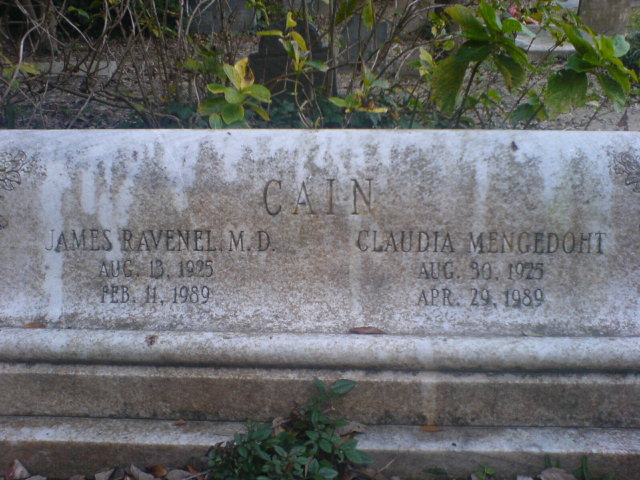Fryderyk Chopin
 Fryderyk Chopin: A Short Essay
Fryderyk Chopin: A Short Essay
By
Varo Borja
The romantic era was one fueled and fanned by the winds of change, not only in the governments of Europe and America, but in the world of the arts as well. Hearkening back to the Baroque era in some respects, music, painting, sculpture, and literature began to be infused with emotion and the gilt ornamentation of faraway places once again; music became more complex and literature, painting and the other arts reflected the changing ideas and emotions of a generation nostalgic for its roots. The second Great Awakening and the Industrial Revolution laid the groundwork for an era of artists to become sick with the familiar and to reach out to the distant horizons or deep within themselves for an answer to the maddening world around them. The French Revolution and the American Civil war were only two of the bloodlettings that propelled this feeling as well. In the world of music, new innovations and technologies allowed composers to create music that would shake the very foundations of the world in flux in which they lived. Fryderyk Chopin was born into this changing and growing world with a gift; although Chopin’s body was weak, his heart was strong and deep, full of life and bursting with music. Fryderyk Chopin created music that transcended the barriers of nationality and ability, and although technically difficult, his music was imbued with an emotional quality and depth of character cultivated not only from his Classical and Baroque influences, but from his own struggles with ill-health and sexual relationships.
Fryderyk Chopin was born in the Polish village of Zelazowa Wola on March 1, 1810, to an expatriate Frenchman and a poor, but distinguished Polish noblewoman (Samson, 1996). Chopin probably contracted tuberculosis during his childhood, but he was loved and nurtured not only by his mother and father, but by the Polish people he came in contact with. Chopin had three sisters with whom he was very close; he received his first piano lessons from his sister Ludwika (Orga, 1980). His youngest sister, Emilia, died young from tuberculosis: an ominous foreboding of Chopin’s own death. Ill health kept the young Chopin indoors most of the year, where he was tutored in French by his father Nicholas, and where he began to receive his first formal instruction on the piano by the tutor Wojciech Zywny (Samson, 1996). Young Chopin was heralded as a prodigy by the aficionados in Poland; however, his father kept a tight rein on this kind of talk and while Chopin was still under his care, Nicholas didn’t let the boy become lazy in his studies (Orga, 1980). However, Chopin quickly outstripped his tutor Zywny, of whom he was very fond, and was published as a musician by the tender age of seven; he gave concerts for charitable purposes and became a favorite of several aristocratic families throughout Poland, most notably the Radziwill family (Orga, 1980).
When he was 16, Chopin went on to attend the University of Warsaw under the tutelage of Jozef Elsner; he was so precocious that he was allowed to skip much of the core curriculum and enter the university at a level of advancement beyond his age (Orga, 1980). Young Chopin was finally away from home and able to fully invest himself in his chosen art: music. Chopin made several friends while in attendance at the University, some of who were noted musicians with anti-government leanings such as the young student, Titus Woyciechowski, whom he would keep in correspondence with throughout his short life (Samson, 1996). According to the book, “Chopin” by Jim Samson, “Cafes were forbidden to the University pupils, but (Chopin) and his friends frequented the theatre, and there was a constant run of name day parties, balls and informal dances” (1996, p. 18). The young Chopin was influenced very heavily by the music he heard at these events in Warsaw, and he even took trips to the countryside (probably for his health) where he was familiarized with Polish peasant music (Samson, 1996). Chopin was plagued by fits of coughing, especially in winter, and suffered much from the cold weather of the region. However, he was accorded a high compliment by his professor, Elsner, on finishing his first year at the University; Elsner commented that Chopin possessed a remarkable talent. Traveling to Vienna while in attendance at the University, Chopin gave a concert there of one of his own compositions and was accorded much acclaim; however, he was also criticized for his smallness of tone. This negative review made the young Chopin question his ability to perform in public, and he developed an aversion for public performances, stating later in life that performing in public was “quite disturbing” for him; he much preferred small audiences and composing to large public displays of his work, at least by his own hand (Samson, 1996). Upon completing his last year at Warsaw University, Chopin was honored with the title of "musical genius" by his professor, Jozef Elsner (Samson, 1996).
Not long after graduation from the University, Chopin went to Vienna again with his friend Titus, but Titus returned early to take part in the Polish revolution in which the Congress government was overthrown (Samson, 1996). Russian troops occupied Poland soon thereafter, and Chopin settled in Paris, never to return to his homeland (Samson, 1996). While in Paris, Chopin continued to compose and met the acquaintance of such formidable musicians as Franz Liszt and Robert Schumann; Schumann remarked at Chopin’s first performance in Paris, “Hats off gentlemen! A genius!” (Mullen, 2004, p. 1). Chopin wrote his most famous pieces in Paris, including his “Minute Waltz” and “Funeral March Sonata” (Samson, 1996). Chopin also made the acquaintance of George Sand, a famous female novelist with whom he began a ten-year love affair. Sand and Chopin’s relationship was very turbulent, but Chopin composed prolifically while they were together, with emphasis on Polish themes such as the Polonaise and the mazurka, and short pieces named only for their catalogue numbers such as his Preludes and Etudes (Samson, 1996). The relationship ended over a dispute with Sand’s family, and Chopin died not long thereafter, on October 17, 1849. He was nursed on his deathbed by his sister, Ludwika, and at his behest his heart was sent back to Poland where it resides in the Holy Cross Church in Warsaw (Orga, 1980). Ludwika died six months later (Orga, 1980).
In conclusion, Chopin’s life was one of precocious talent, prodigious composition, stormy health and relationships, and early death. Many people have been greatly affected by Chopin’s music, but there have been some detractors and his music has fallen out of fashion at times. J.W. Davison, a music critic for the London Times, thoroughly denounced Chopin’s music when he said, “Compared with Berlioz, Chopin was a morbidly sentimental flea by the side of a roaring lion” (Yudkin, 2008). My reaction was somewhat different on hearing Chopin for the first time. I wrote this statement for my blog, “Tanzanian Peaberry” on December 8, 2006 when I was first introduced to Chopin’s preludes,
Up, down, down to the depths of the sea and all inside a gilded box. Tighter and tighter and back again, soaring and plummeting the sweat and the tears flowing but so reserved, the gentleman and his fiery steed, the fox and the bear and the unending struggle for air, just a breath of air and the sea, the sea. Bent upon the keyboard grand spectacle and faster, faster flows the fire unquenchable. Phillistines bowing before the God of heaven and the ark of the covenant and the Crimea snow covered and deathlike. FASTER, FASTER, spin the planets and suck the big bang into a ball, singularity becoming tinier and tinier and then silence. Cheers of the multitude. Death on a Sunday. The Queen bows and places the crown at the feet of a beggar, and silence. Silence.
At the time I had no idea that Chopin was afflicted with tuberculosis during his life and died young, or that he had ever been accused of being too “reserved”, which he was by a great many detractors. I also had no idea that Chopin had been presented to Queen Victoria or heard any of the rumors that she had become his pupil (Orga, 1980). Chopin’s music said it all. It was in his ability for expression and the depth of his sonorous meanderings on the piano that Chopin deserved the acclaim he received in his day, but it is in his ability to speak to the listener of today and his still far-reaching appeal that Chopin has earned a place among the greatest musicians of all time.
References
Mullen, A. (January, 2004). In search of Chopin. Hudson Review, 56,
695.
Orga, A. (1980). Chopin: His Life and Times. Neptune City, NJ: Paganiniana
Publications.
Samson, J. (1996). Chopin. New York: Schirmer Books.
Yudkin, J. (2008). Understanding Music. Upper Saddle River, NJ: Prentice Hall.



No comments:
Post a Comment